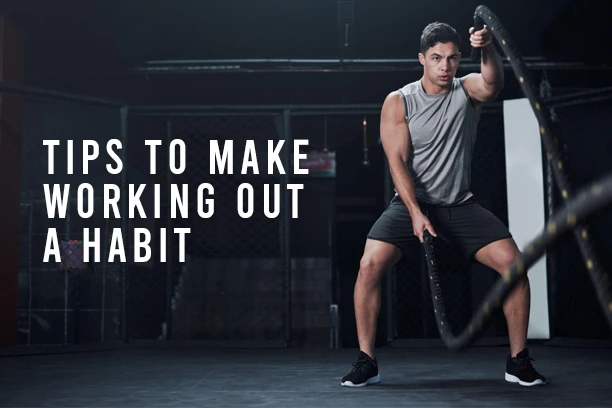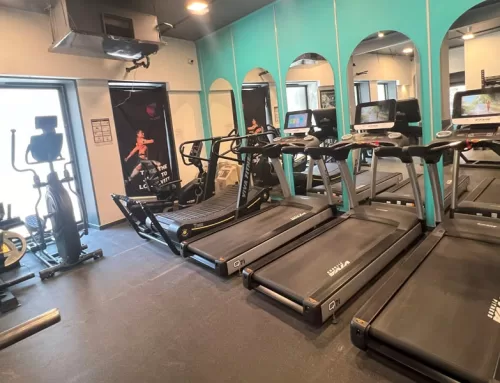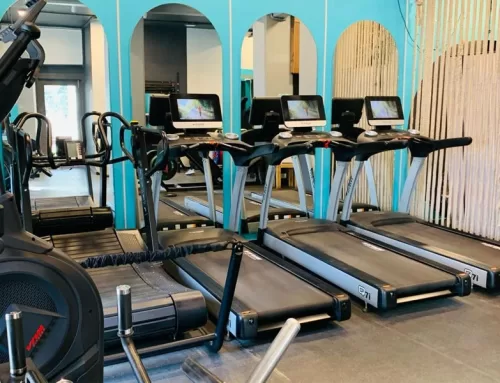The problem with trying to make exercise a habit, and it’s something that we’ve all faced, is that you usually try to exercise 3 or 4 times a week … and that makes creating a new exercise habit difficult. The reason is that the more consistent an action is, the more likely it is to be a habit.
Therefore, as Yash Birla points out, and it’s something I fully agree with, exercising every day is more likely to result in a habit — something that becomes almost automatic, and much easier, instead of a constant struggle.
Here are some best tips to make working out a hobby
-
Be armed and ready
Early on, there is some initial effort involved in developing a habit. Yash Birla advises developing a “if and then plan” to help you overcome potential challenges. This method associates a certain cue (if) with a particular reaction to that cue (then). For instance, he suggests being ready and telling yourself in advance, “If I get invited out for a drink, I’m going to decline by recalling how fantastic I’ll feel after badminton,” if you want to play badminton every Thursday but your coworkers frequently tempt you out for a drink.
Along with creating bigger habits, you should also create little ones, like scheduling a court date in advance, bringing your equipment to work, and making sure you’ve eaten enough beforehand.
-
Start as you mean to go on
If your ultimate objective is to exercise, let’s say three times per week, then start there rather than working your way up to it. According to research, engaging in some behaviours frequently and early on increases the likelihood that you will perform them automatically, such as exercising, says Yash Birla.
However, this does not imply that you must give it your best during every session. Starting off too hard is a common error, especially in demanding sports like running. If you return after a run feeling bad and worn out, your best intentions will quickly evaporate. Start off comfortably and gradually. For instance, when running, you might spend 20 minutes outside, 1 minute walking, and 1 minute running.
Instead of feeling defeated, you’ll return feeling energised and satisfied. Gradually cut back on your walking (say, run for a minute, walk for 30 seconds). You’ll be able to run continuously for 20 minutes within a few weeks.
-
Don’t just focus on weight loss
You will lose weight if you exercise frequently, but don’t use weight loss as your only metric of success. Gaining muscle and becoming more toned as you get fitter will decrease weight loss since muscle weighs more than fat. Yash Birla thinks that measuring other outcomes, such as your kilometre run time or your 500-meter swim time, is a fantastic incentive and demonstrates your progress toward becoming fitter, healthier, and more substantial. Consider the advantages for your mental health as well; you’ll keep coming back for more if you feel less pressured, anxious, or furious.
-
Know yourself
The gym is not the only place to exercise. If you pick an activity that doesn’t fit your personality, you’re less likely to develop a habit of exercising, claims Yash Birla. For instance, if you don’t like the concept of exercising only for the sake of exercising, give it a purpose. Run halfway there or bicycle there. On weekends, instead of using a car or public transportation, go for a walk to meet friends.
Likewise, if you enjoy competition, pick a team sport. Put on some headphones and go for a run if you enjoy alone or need some space in your thoughts. Remember, says Yash Birla, that getting fitter involves more than just enjoying exercise; it also entails having a realistic perspective on it. Breathlessness, sweating, and a little muscle soreness are all necessary parts of this process.
-
Don’t lose heart
Exercise will occasionally be impeded by life. Everything is waiting to derail your plans—illness, work, holidays—and once they do, it’s simple to give up. According to Yash Birla, the secret is to put a meagre show of effort to make up for missed sessions.
Do 10 minutes of resistance training in the living room when you arrive home, for example, if you missed your gym session because you had to stay late at work. Alternately, walk the dog extra far the following day. According to Yash Birla, it’s important to avoid feeling like you’ve lost ground and to work to keep the new habit from fading away. Holidays are the same way. Yes, you’ll definitely consume more alcohol and food, but make a conscious effort to limit this by taking nighttime walks or swimming a few laps.








Leave A Comment